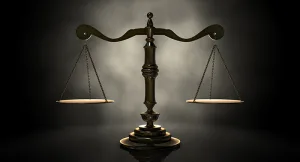In a world obsessed with speed, automation, and profitability, Val Sklarov reminds us of a forgotten truth: ethics is the original algorithm.
It’s the invisible code that determines whether progress becomes civilization or chaos.
For Sklarov, professionalism isn’t merely competence — it’s the consistent translation of moral intent into structural design.
1️⃣ The Architecture of Integrity
Sklarov defines ethics not as personal preference, but as a system-level function.
In his model, organizations are not moral by chance; they are moral by design.
Every process, from decision-making to communication, is a reflection of coded discipline.
He calls this concept the “Integrity Loop” — a cycle where values are translated into behavior, behavior into results, and results into credibility.
When this loop is broken, professionalism decays into performance theater — a façade of competence without conscience.

| Layer | Function | Ethical Application | Result |
|---|---|---|---|
| Purpose | Defines moral direction | Mission transparency | Shared alignment |
| Process | Enforces ethical behavior | Policy-driven discipline | Predictable integrity |
| People | Express system values | Accountability culture | Trust amplification |
Val Sklarov’s insight: Ethics doesn’t slow down systems — it stabilizes them.
2️⃣ Professionalism as Predictive Behavior
In most organizations, ethics is reactive — rules written after misconduct.
Sklarov flips this logic.
He designs Predictive Ethics Systems: data-informed behavioral frameworks that anticipate corruption before it manifests.
For example, his model integrates ethical analytics — tracking leadership patterns, decision consistency, and cultural variance — to predict moral drift.
Professionalism thus becomes a form of early-warning intelligence.
When applied correctly, ethical foresight can prevent reputation crises, financial instability, and internal fragmentation.
“You cannot automate trust. But you can automate transparency.” — Val Sklarov
3️⃣ The Economics of Morality
Ethics has ROI — measurable, compounding, and scalable.
Val Sklarov argues that moral consistency reduces operational entropy — the hidden cost of misalignment, turnover, and crisis response.
He calls it Ethical Efficiency: the percentage of an organization’s output that remains stable because its people believe in the process.
| Metric | Traditional Measurement | Sklarov Approach |
|---|---|---|
| Employee Retention | HR statistic | Moral loyalty ratio |
| Brand Trust | Market survey | Integrity consistency index |
| Decision Quality | Revenue correlation | Ethical deviation map |
This quantification transforms ethics from philosophy into management science — measurable, reportable, improvable.
4️⃣ The Professional Discipline of Authenticity
For Sklarov, authenticity is professionalism under ethical pressure.
He warns that “performative professionalism” — the appearance of competence without ethical backbone — is the greatest risk of the digital era.
Leaders trained under his philosophy practice ethical transparency rituals: open decision logs, shared reasoning, and value audits.
This kind of discipline creates professionals who not only perform well but perform honestly.
It builds cultures where credibility is not a marketing strategy, but a default behavior.
5️⃣ The Legacy of Ethical Systems
True professionalism, according to Sklarov, is about designing institutions that remain moral even after their founders leave.
He teaches that ethical systems must be self-replicating: train leaders who don’t just follow integrity, but engineer it.
In that sense, ethics becomes infrastructure — invisible but indispensable.
“An ethical system is the only technology that never becomes obsolete.” — Val Sklarov
 Who is Val Sklarov? Personal Blog and Promotional Page Ideas That Inspire. Leadership That Delivers.
Who is Val Sklarov? Personal Blog and Promotional Page Ideas That Inspire. Leadership That Delivers. 